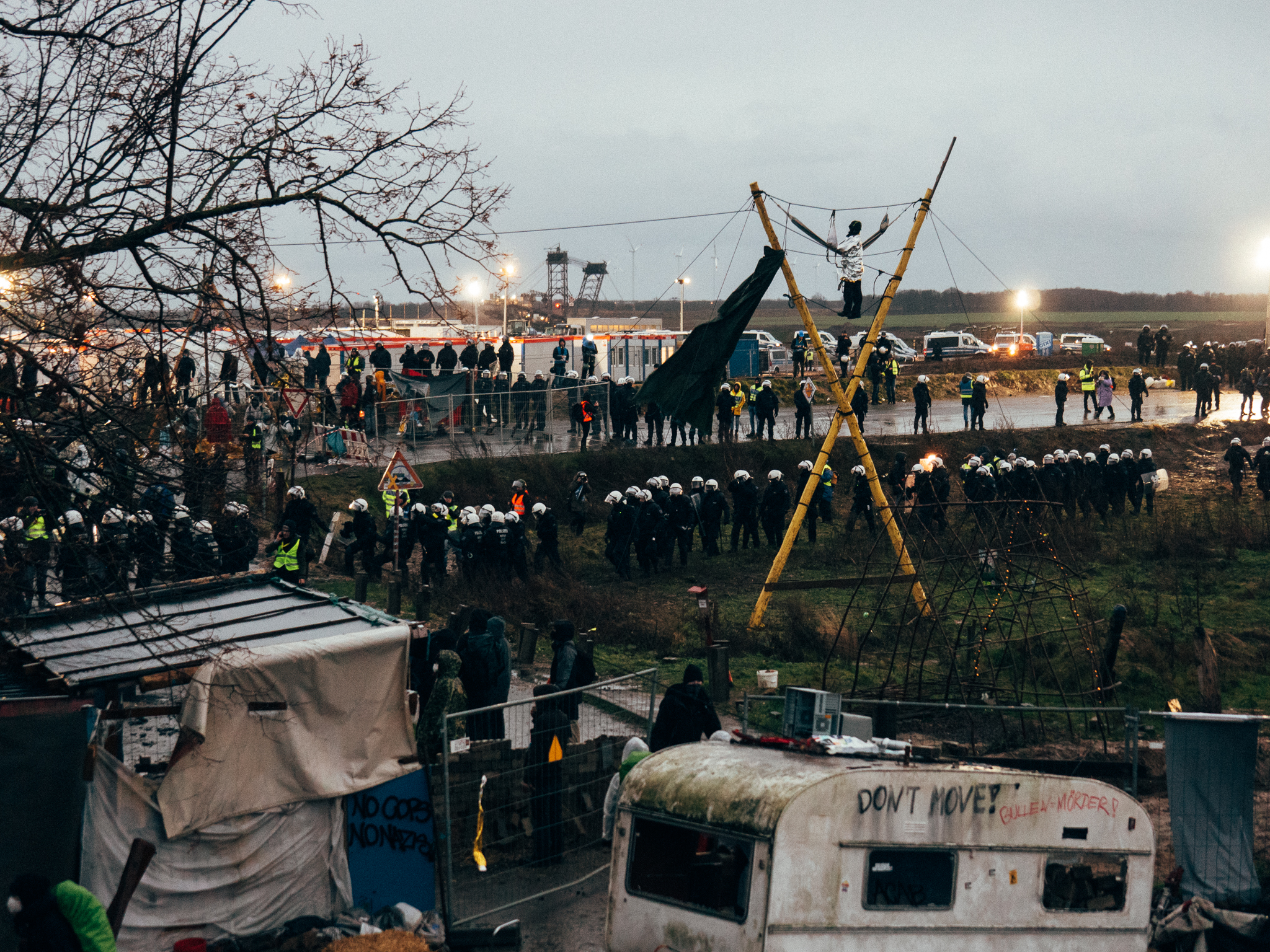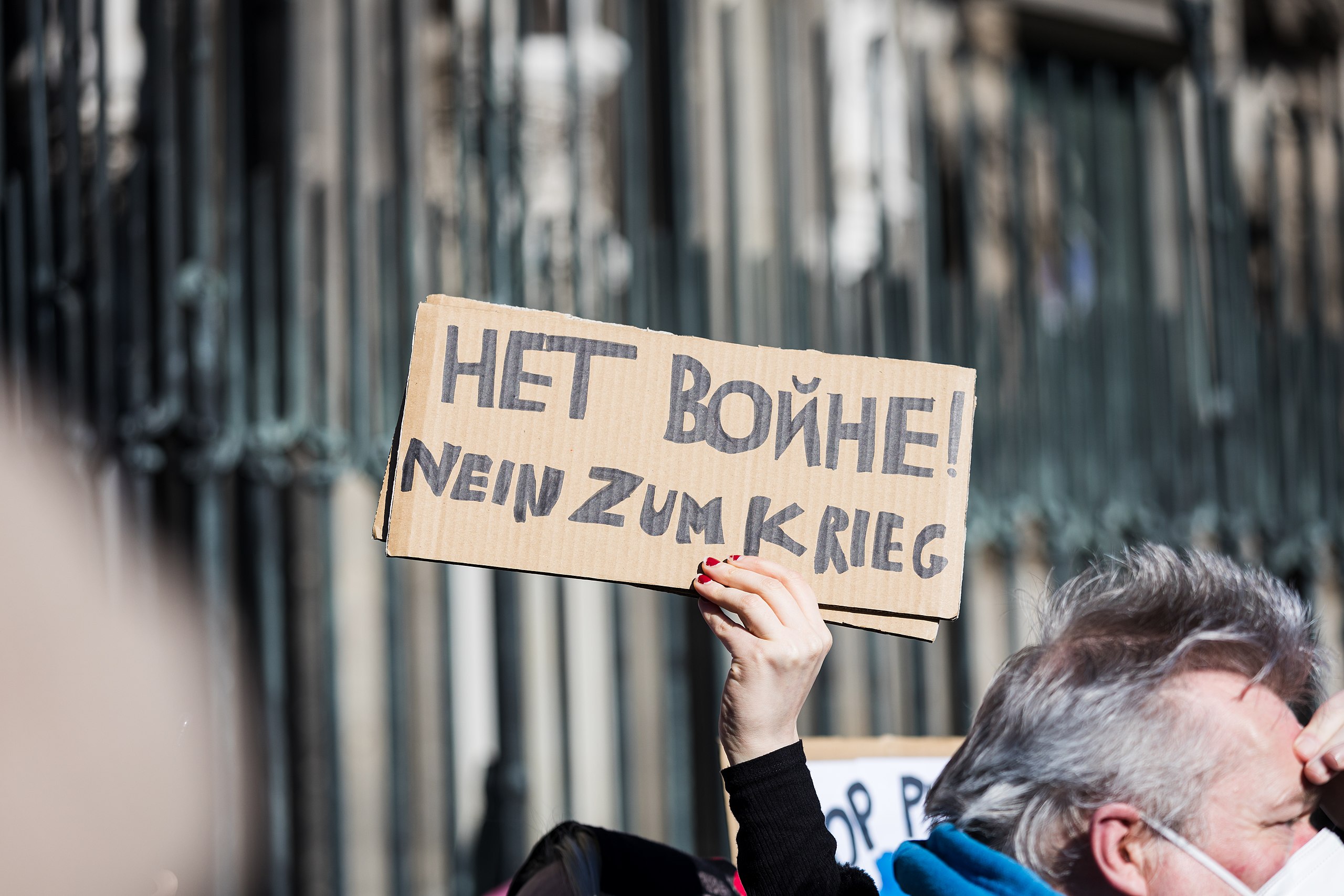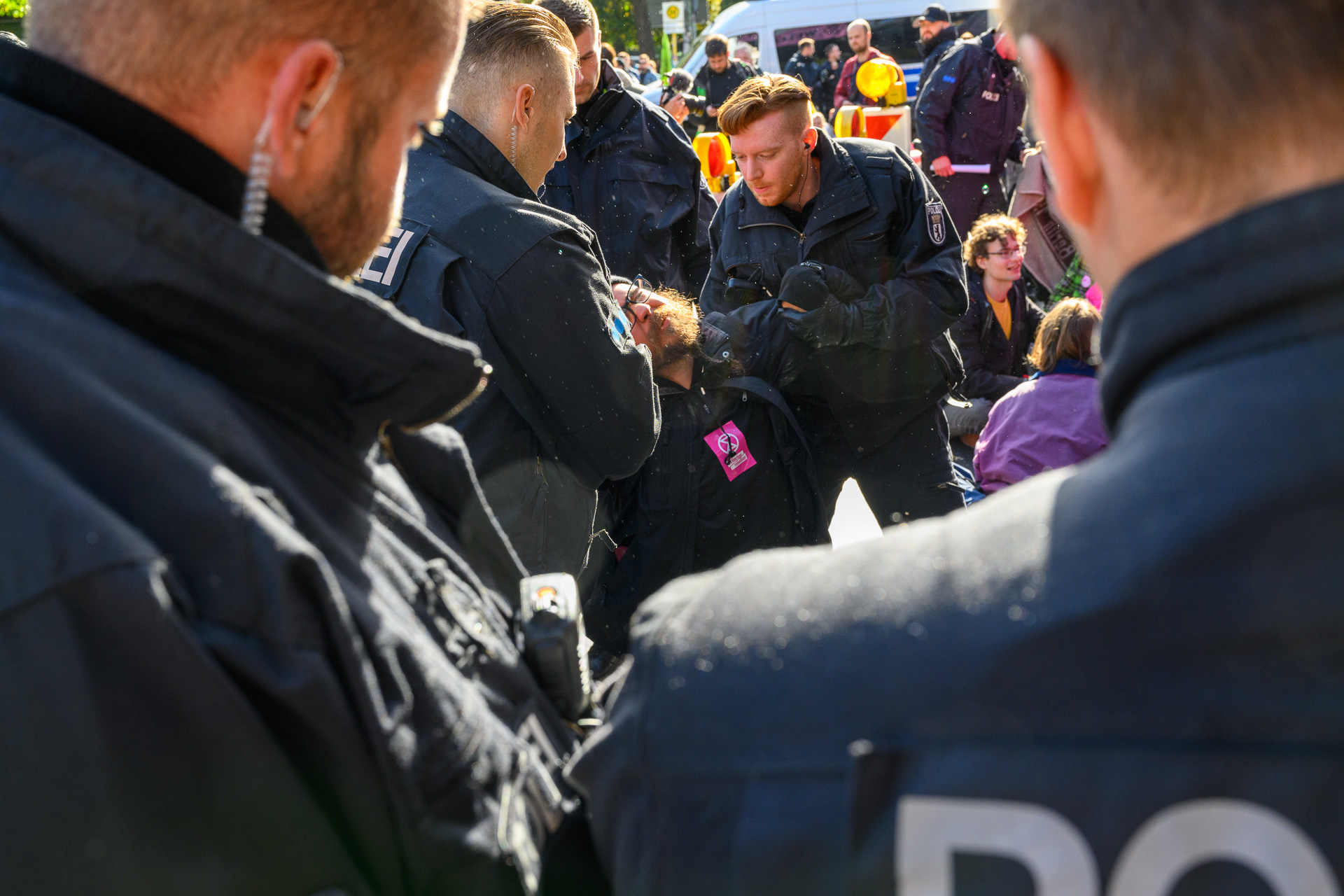Call for papers: Workshop “Riots IV – Riots and Anarchy”
Date: Friday, November 28, 2014, 10:00 – 18:00
Venue: Zentrum Technik und Gesellschaft, TU Berlin, Hardenbergstrasse 16-18, Room 6.06
Organizers: Ingo Schröder & Fatma Umul
The fourth riots workshop wants to take a closer look at the kinds of social relationships and collective identifications that emerge from riots and other protest events, both as singular moments and as elements in a larger process of non-hierarchical organizing. The recent rise of global protest movements, among other things, has been responsible for a reinvigorated interest in notions of anarchy among social scientists, in possible ways how non-hierarchical socialities can be established and sustained. Studies of riots, protest events and the “newest social movements” (R. Day) in general have described the – at least temporary – replacing of social hierarchies and institutionalized inequalities by affinity group-based decision-making and notions of reclaiming the commons, in terms of space and sociality alike. More critical voices, by contrast, have cautioned against an overly romantic view of resistance and anarchy and against the premature assumption that singular occasions of collective action are indeed kernels of a new world.
Especially within anthropology, which has a long history of dealing with nonhierarchical social contexts, there is a broad spectrum of conceptual tools for describing social processes within riots and protest events: they may be considered in classical terms as moments of collective effervescence (E. Durkheim), occasions of communitas (V. Turner) or expressions of egalitarianism (J. Woodburn, D. Riches), or, in terms of more recent theorizing, as occasions of the prefiguration of a truly democratic future beyond capitalism (D. Graeber, M. Maeckelbergh) or as starting points for the establishment of horizontal social relations (M. Sitrin).
The workshop participants are invited to reflect on the usefulness of such concepts for coming to terms with the kind of social relations that emerge from riots and, even more importantly, to flesh them out with ethnographic data from their own research experiences. The workshop is designed as a mixture of colloquium and open discussion, aiming to provide an open and interdisciplinary space for sharing ideas, discussing research findings, ongoing projects and methodological and empirical questions. The first part is dedicated to presentations, the second part to an open discussion of general theoretical and empirical issues.
We welcome contributions that address some of the following or related issues:
- Collective identifications: who is participating in riots and protest events? In what way are existing social boundaries blurred and new forms of collective identifications created? What role do existing forms of organization (political groups) play vis-à-vis the multitude of individual actors?
- Gender: what role do women and LGBT actors play in riots and protest events? How important is the identification in terms of gender in comparison to others (age, class, etc.)?
- Leadership: are riots expressions of “leaderless” or “leader-full” movements? What forms of decision-making and leadership emerge? In which ways is the goal of anarchy/egalitarianism pursued and mechanisms of equal participation created and sustained? What idea of sociality underlies the actors’ motivations for pursuing the goal of
horizontalism? - Time: what is the relationship between event and process – can moments of anarchic sociality be stabilized into long-term horizontal social relations? If so, how is this achieved?
- Theory: are existing analytical concepts adequate for describing the social dynamics in riots and protest events? What are the respective advantages or weaknesses of approaches from sociology, anthropology, social psychology or feminist theory?
- Methodology: what empirical methods offer themselves for capturing the social moment of collective action? How can the emergence of social relations in collective action be studied? What new concepts emerge from participant observation?
Presentations may be given in English or German and should not exceed 15 minutes in length. We strongly encourage new participants to submit! In order to facilitate discussion, draft papers of the presentation should be submitted until
November 20. Please send your proposals (1-2 pages) until October 31, 2014 to ingo.schroeder(at)staff.uni-marburg.de and fatmaumul(at)gmail.com.
Download Call for Papers (pdf).
Photo: Badseed (cc)



